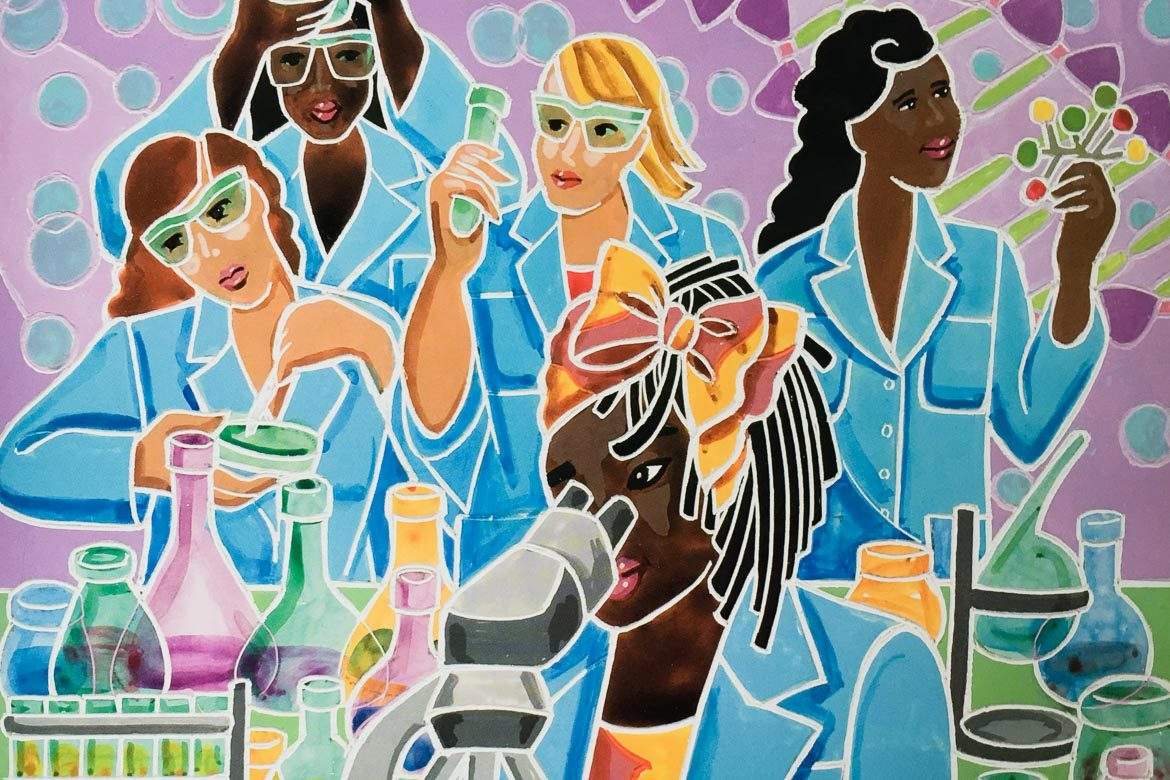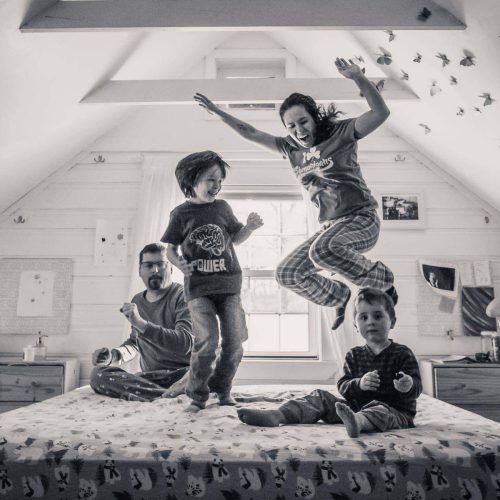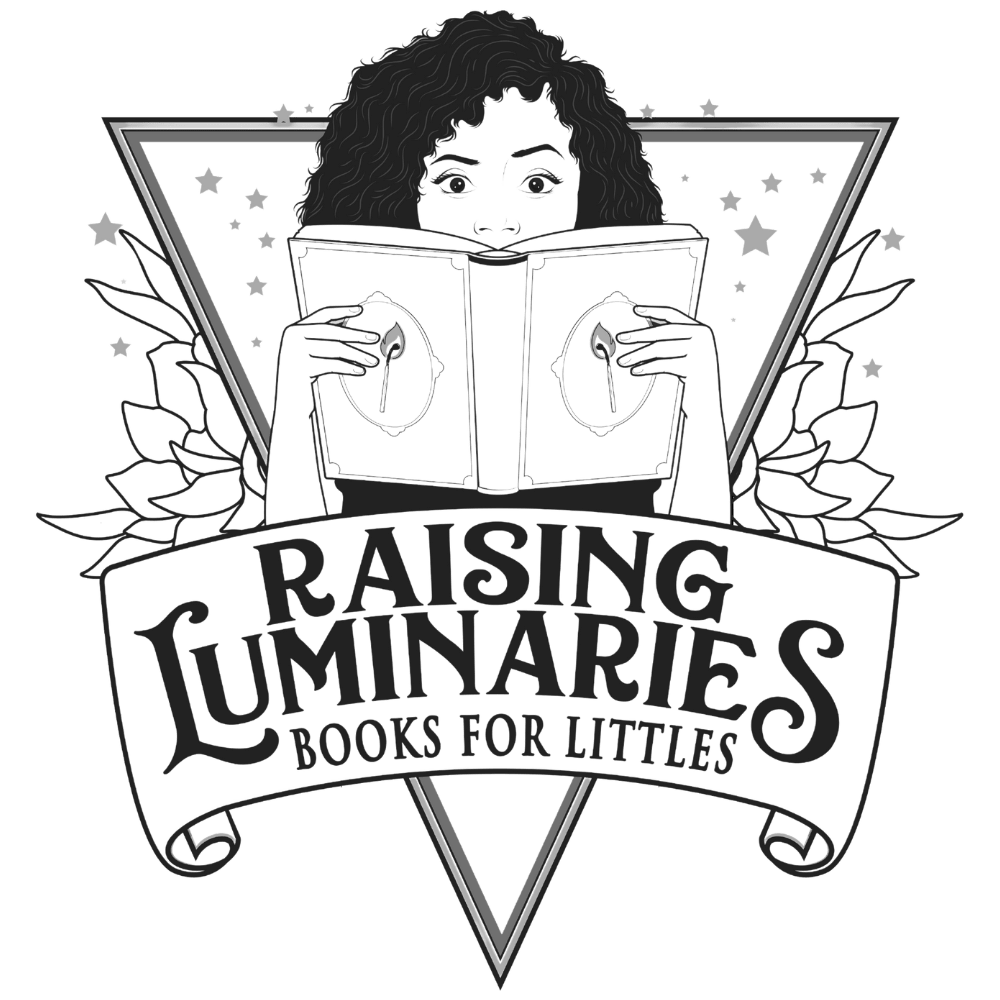[Image Descriptions: Illustration from Seeds Of Change: Wangari’s Gift To The World, by Jen Cullerton Johnson & Sonia Lynn Sadler. Colorful illustration of Wangari and a group of scientists studying in a science lab.]
In his post: Get kids excited for school. Show them how hard education advocates have fought for their right to public education – and the battle for equity that we’re still fighting.
Raising Luminaries is free and accessible for readers who can’t afford a paywall. Posts may contain affiliate links, which allow me to earn a commission at no extra cost to you. Check out the full affiliate disclosure along with my statement of accountability. If you’re into supporting libraries (please do!) more than consumerism, you can also support my work directly:
Donate or shop using an affiliate link via| Paypal | Venmo | Ko-fi | Buy a t-shirt | Buy a book
Quality education is still inaccessible for the vast majority of children. Girls and nonbinary kids, children of color, children with disabilities, immigrants, and bilingual speakers are denied an equitable education. Schools in the United States are still segregated.
Our public schools are designed to reinforce and uphold white supremacy and colonialism. Systemic inequality in education is expanding the wealth gap and debilitating the long-term health of our economy. While overt racial segregation in schools is technically illegal, the implicit (or overt) bias of teachers and administrators, racist hiring practices, the unequal allocation of resources among gerrymandered and gentrified school districts, and the draining of public education funding in favor or private-education and nepotism pours quality education on the powerful and sucks resources away from the working classes.
Even if you are raising wealthy, non-disabled, white sons to attend private school and inherit the family business – your life depends on equitable public education for all.
At some point, something bad will happen to you. You are going to need some help.
Your car will break down. You will need a trustworthy tow-truck driver and innovative mechanic.
You will need help with your children and grandchildren, and they will need caring, patient caretakers and teachers who make a livable wage.
You will get sick. You will get old. Your life will depend on devoted scientists, attentive doctors, and dedicated nurses for your survival.
Your children’s health depends on incorruptible environmental regulators who keep our water and air clean, innovative business leaders who boost the economy without devastating the planet, and farmers who can grow nutritious food without poisoning the earth for future crops.
But even though your life (and your child’s) depends on accessible education and a competent, healthy, and knowledgeable workforce to rely on – we are facing an education crisis.
Fight this. Teach your kids that education is a right. Read them stories that de-center the popular narrative, break through whitewashing, ablesplaining, and xenophobia.
We lose thousands of creative young minds to the school-to-prison pipeline every day. We let brilliant future scientists, doctors, leaders, entrepreneurs, mathematicians, engineers, and artists fall through the cracks in a broken education system that promotes power to a tiny wealthy fraction at the expense of humanity.
Fight this. Read stories to your kids that show how everyone has a right to an equitable education, inclusive classrooms, and opportunities. Inequity in public education, affordable childcare, and family leave is an unsustainable bubble.
If you don’t take action now, things are going to fall apart. Teach your kids to appreciate and fight for quality public education for all.
Fighting For Women’s Education Rights
The success of a community depends on women’s rights to education. Our kids need to know that a woman’s access to education and equal employment are tied to global warming and conservation, religious freedom, feminism, and economic equality.
For The Right To Learn, Seeds Of Change, Ruby’s Wish, One Plastic Bag
You might also like: Why Boys Need Books About Kickass Girls Of Color
Fighting For Race & Disability Desegregation In Schools
The civil rights movement is just the beginning in the fight for inclusive, accessible classrooms. The following books feature fighters against segregation in the classroom for Black, Latinx, and disabled students.
This is a recent and ongoing fight. I’m writing this in 2018. Sylvia Mendez is only 82 years old. Ruby Bridges is only 64.
Amy, The Story Of A Deaf Child isn’t about education, but a project in humanizing disability – visual proof that Deaf kids are regular kids. Disabled students can’t demand equal education outright because our society still sees children with disabilities as worthless to the economy and burdens to society. It’s 2018 and we’re still fighting for basic human rights for people with disabilities. Amy fought (and lost) the fight for accessible public education for Deaf students in 1982, building momentum for the endangered American Disabilities Act in (tenuous) place today.
The Story Of Ruby Bridges, Amy, The Story Of A Deaf Child, Separate Is Never Equal, Helen’s Big World, All The Way To The Top
You might also like: Books About Resistance For Courageous Kids
Disability Acceptance In The Classroom
Since disability rights take a back-seat to most civil-rights issues, there aren’t really books on this. For now, these are the ones we use to show that everyone has a right to an accessible education regardless of challenges and learning styles.
Amelia Bedelia’s First Day of School. Amelia B. has always coded as autistic, even though she’s not officially labled as neurodivergent. The modern picture book AB books feature allistics apologizing for not speaking clearly. The older AB books were suuuper ableist.
Moses Goes To School has some outdated technology (published in 2000), but it serves as a reminder to our kids that Deaf-accessible classrooms are just as valuable as speaking ones, plus folks who sign and write are receive bilingual education.
My Three Best Friends And Me, Zulay, is a bit of a narrative mess (is it about friendship? perserverence? it’s muddy), but it normalizes a Blind girl who has agency over her own life and education.
A Boy And A Jaguar shows how children with communication disabilities (in this case, a stutter), face bigotry and exlusion from educators.
You might also like: Kids Books About The Social Model of Disability
Empathizing With English Language Learners
The Name Jar, From For Away, A Piece of Home (All written or illustrated by #OwnVoices makers.)
Recommended with reservations: I’m New Here does a good job centering English-language-learning immigrants. But the author is an English-speaking white woman from the US, and she previously illustrated a white savior / fetishizing book about transracial Korean adoption (What Will You Be, Sara Mee?).
Also – would it kill makers to admit that not all non-English-speaking immigrants are people of color?
Careful.You might also like:
You might also like: Immigrants Belong Here – Books To Help Kids Advocate For Open Borders
Acknowledging The Violent History Of Colonial Education
When We Were Alone is enduring and hopeful for kids under 4 and kids just learning about forced colonization. Home To Medicine Mountain and When I Was Eight tackle slightly grimmer aspects of residential schools (but no where near the actual violent reality Indigenous American/First Nations children were subjected to). All children should know about this history so colonists and settlers can begin to make reparations.
You might also like: Dismantling The Myth Of The First Thanksgiving
Problematic Books Centering Native English-Speakers & Neurotypicality
Avoid whitewashed books that white narratives and reinforce stereotypes. Things to keep an eye out for:
- Problematic: My Two Blankets celebrates white saviorism and centers North American/British accents as standard non-white accents as wrong and ‘funny’ and African immigrants as pathetic and helpless without white guidance.
- Problematic: My Name Is Yoon paints Koreans with stereotypical bowl-haircuts and grotesque caricature features (beyond the surrealism of the illustrator’s signature style). They don’t even bother to get the facts straight on Korean language & writing. It’s similar to The Name Jar, but garbage.
- Dangerously Problematic: Armond Goes To a Party. The average public classroom is still an inaccessible hellscape for folks with neurological disabilities. Most public schools subject students with disabilities to conversion-therapy that causes lifelong trauma and leaves them vulnerable for future grooming and abuse. Books like this promote neurotypical supremacy at the expense of autistic children’s pain and exploit the vulnerability of kids with disabilities under the guise of #OwnVoices. Click here for more details on how this book promotes coerced consent and devalues the experiences of people with disabilities.
Stay Curious, Stand Brave & Think Critically
If you’d like to join us in raising the next generation kind & brilliant luminaries, support the work I do
Support these resources via Paypal | Venmo | Ko-fi | Buy a t-shirt | Buy a book



























